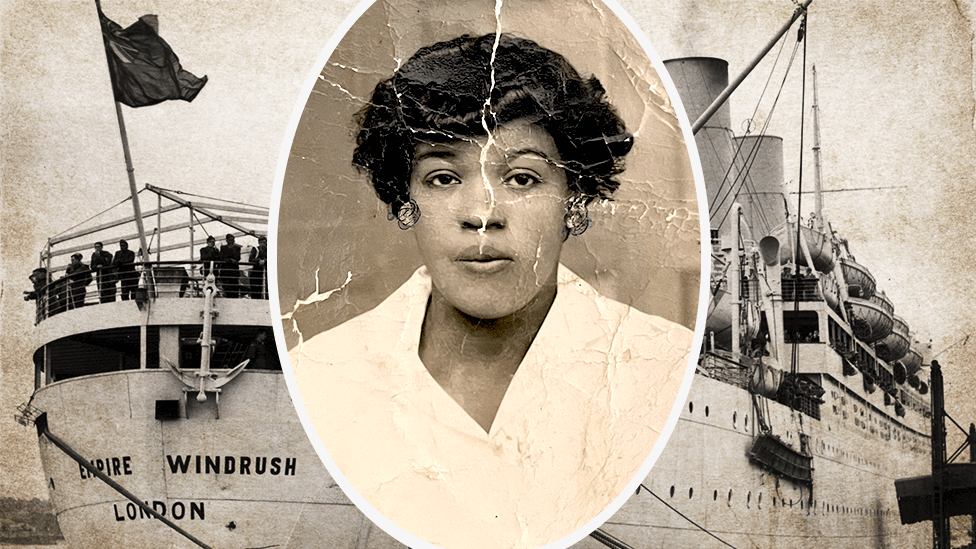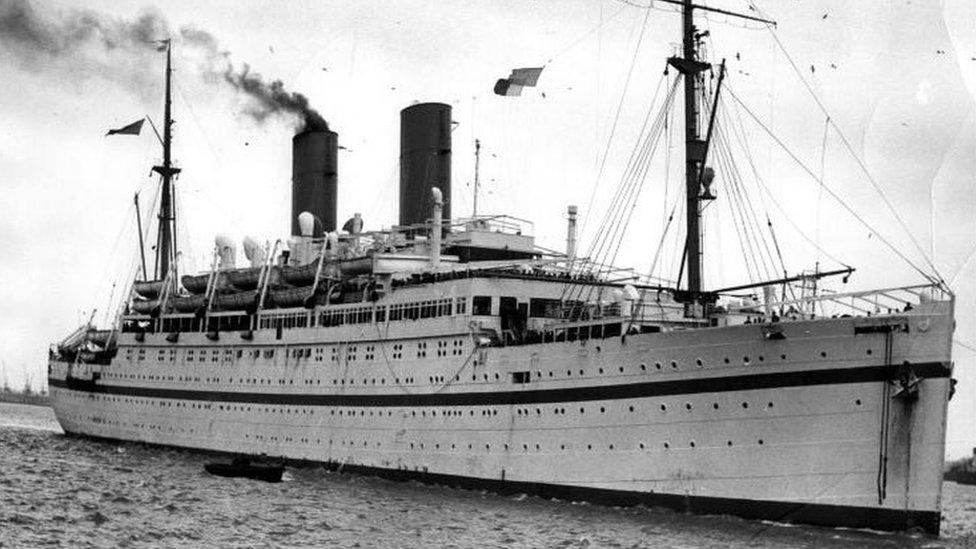Windrush generation recall arrival in Britain
- Published
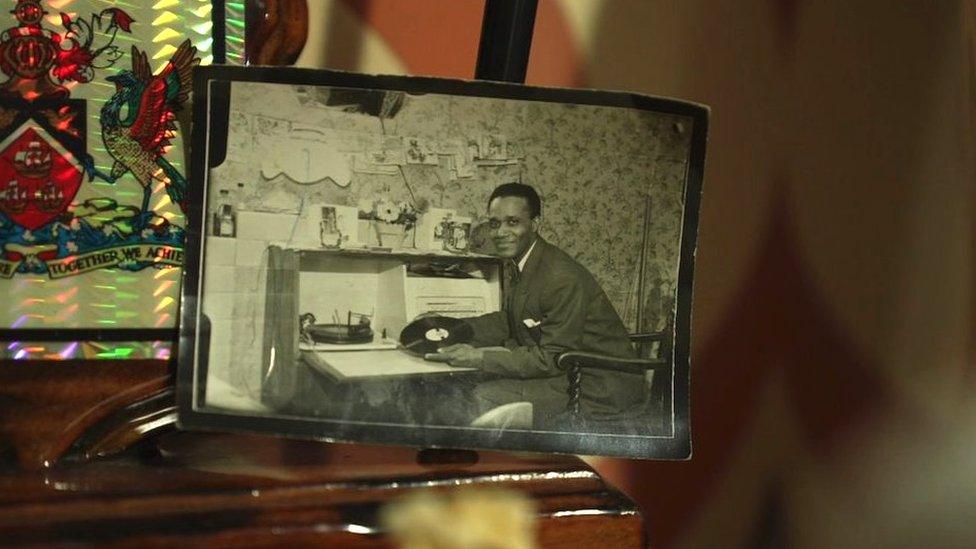
The recreation of a British-Caribbean home is nostalgic
It has been 75 years since the first of the Windrush generation arrived in the UK - a landmark moment that altered the course of British history. But what does the day mean to them?
"Coming from the different islands, we have done a lot in this country - I say we have put the 'Great' in Britain," said Joan Harry, who came to the UK in 1960, aged 19.
She was one of thousands of people who made the move from the Caribbean between the late 1940s and early 1970s, known as the Windrush generation.
I discussed the anniversary with her and some of her friends in a nostalgic recreation of a classic, mid-century British-Caribbean home, run by the Windrush Generation Legacy Association, tucked away in a Croydon shopping centre.
For Ms Harry, the anniversary is an opportunity to remind people of what her generation has accomplished in - and for - this country.
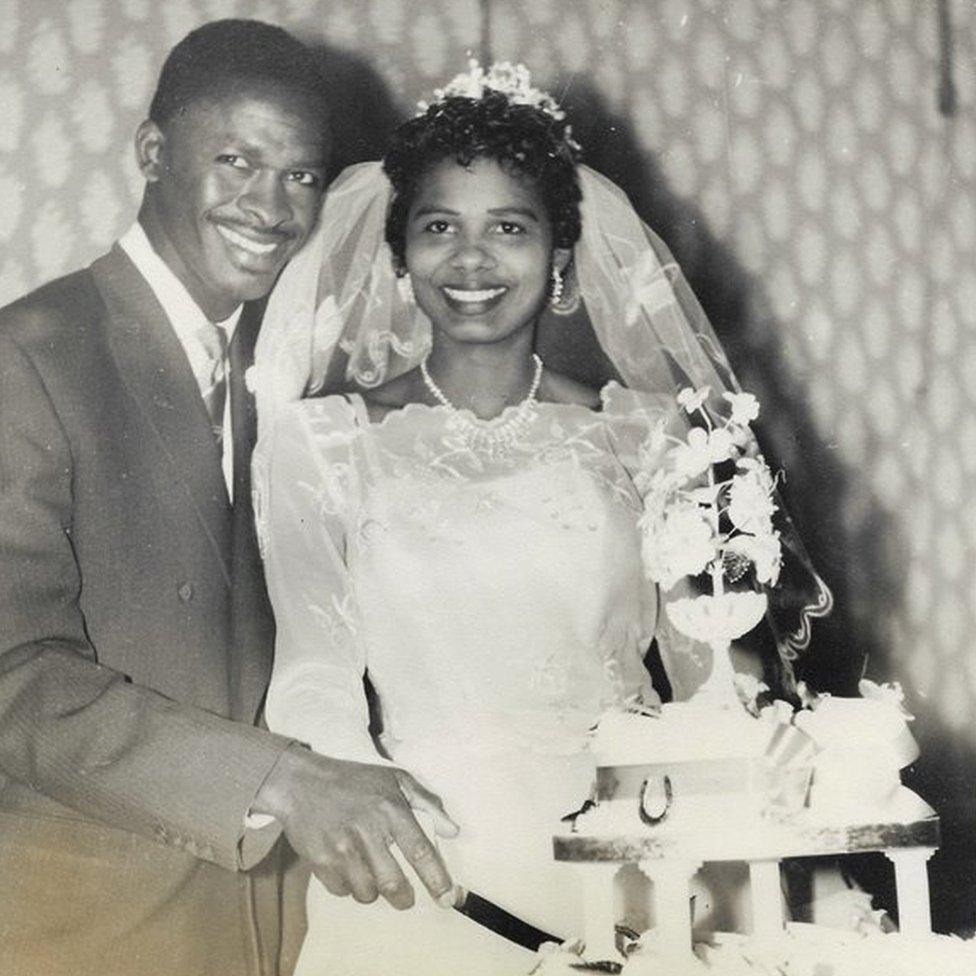
Joan Harry reunited with her boyfriend in the UK, and married him here
"It means a lot - because it's about memory, and it reminds you of how Windrush came about," she said.
"We have worked hard to put this legacy forward - that is a mark that our children can look back and say, 'our forebears did that'."
June Grandison, meanwhile, tells me that many believed that their stay in the UK would only be brief.
"I came here in 1962," Ms Grandison recalled. "I thought I was coming for five years, and then would go back home to practise as a nurse. But 60 years later, I'm still here!"
For others, the day has also brought up a lot of memories of when they first arrived here.
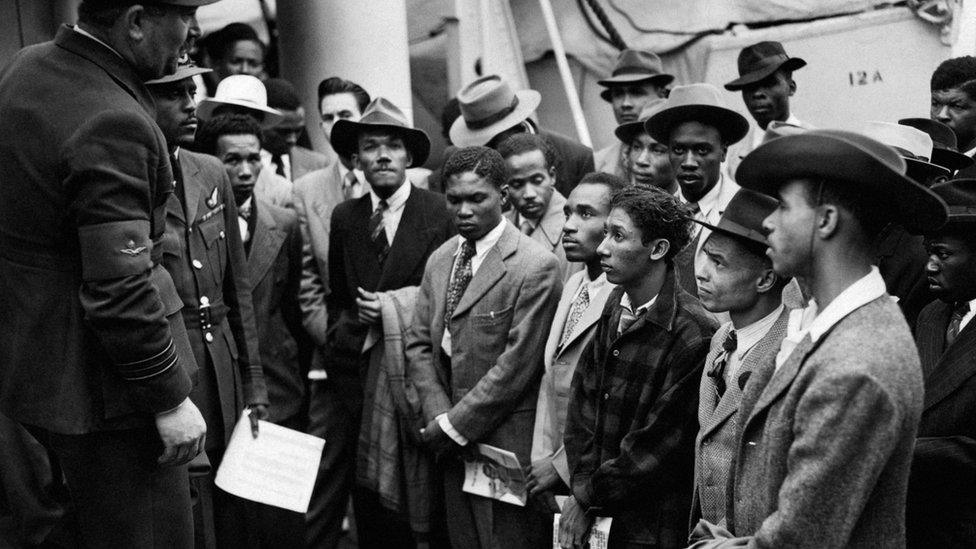
HMT Empire Windrush docked in Tilbury on 22 June 1948
Joycelyn Styles, who arrived in 1962 aged 12, vividly remembered what a shock the climate was and says she has still not quite got used to it.
"It was cold and miserable then and it's cold and miserable now," she laughed, tongue in cheek.
But while there was a lot of light for this generation, there has also been shade.
Ms Grandison told me of one of her earliest experiences of discrimination in this country, which is still vivid in her mind.
"Before I did nursing, I applied for a job in the West End - not knowing anything about racism, because of course we came from the mother country," she said.
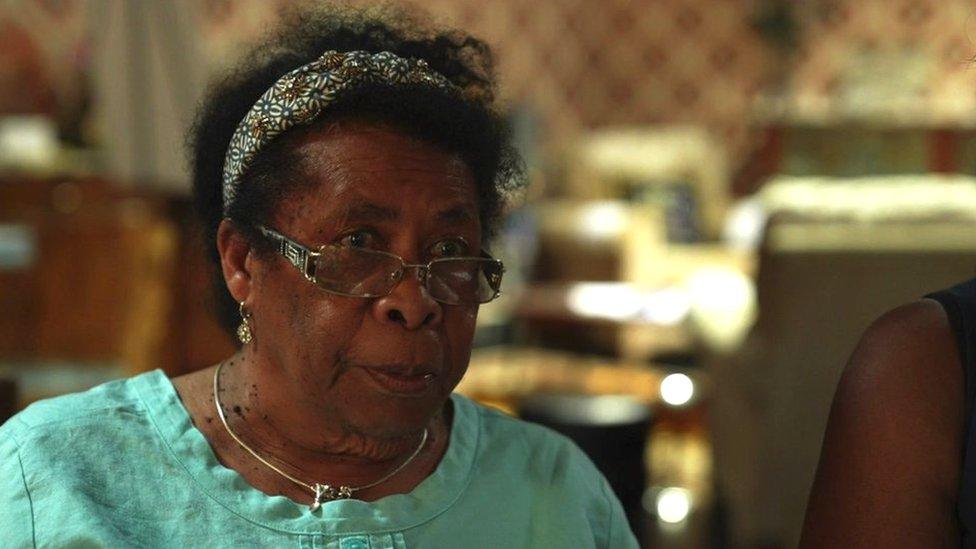
June Grandison vividly recalls her first experience of racism in the UK
"My [maiden] name was 'Brookes'. I applied for the job, I went for the interview, and the lady put me in a room and she never came back to me. I sat there for about six hours, and then the shop was closing, and I left.
"Because my name was 'Brookes', they thought when I applied that I was an English person."
Inequality has been pervasive for this generation - not just in those early years, but also in recent ones.
In the last five years, the name "Windrush" has become synonymous with injustice. The Windrush scandal affected thousands of people from former British colonies who moved to the UK before immigration laws changed in 1971.
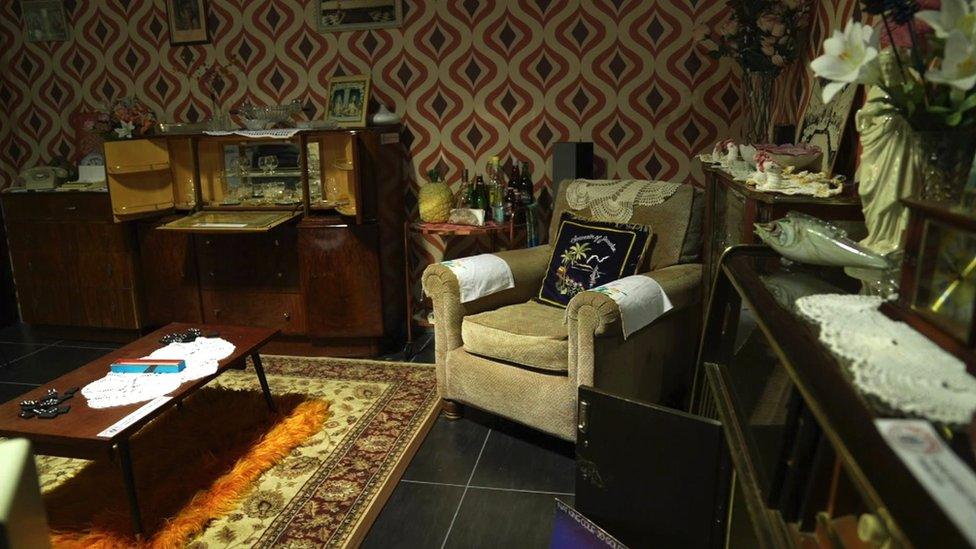
The mock-Windrush home is tucked away in a shopping centre in Croydon, south London
They were given the permanent right to live and work in the UK, but not the documentation to prove this.
This meant they were later denied employment, housing and benefits to which they were entitled. Many were also deported.
Johnny Samuels, from Coventry, came to the UK in 1964, aged eight.
After an injury left him out of work in 2008, he was told he could not claim benefits.
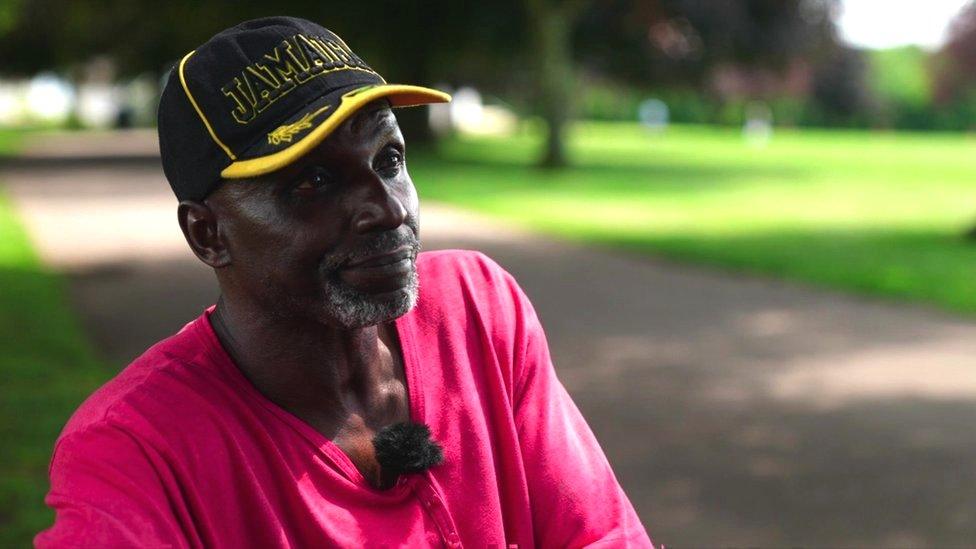
Johnny Samuels has "mixed feelings" about the day
Mr Samuels was also threatened with deportation, and detained three times while trying to return to the UK from trips abroad.
"To tell you the truth, I had a breakdown," he said. "The pain is still there - even though I've received my passport, after more than 55 years."
In a statement, the Home Office told BBC News that that it has "paid or offered more than £75m in compensation" to victims.
"We know there is more to do, and will work tirelessly to make sure such an injustice is never repeated," it added.
For Mr Samuels, the anniversary is tainted by his experience.
"I have very much mixed feelings, because for one, it took so many years for some recognition of some sort - it's not there yet - of what the Windrush generation did, and are still doing to date,
"And also of the negative things that we met, like [signs reading] 'No Irish, No Dogs, No Blacks'. That is still hurting today."

Are you part of the Windrush generation? Share your stories by emailing haveyoursay@bbc.co.uk, external.
Please include a contact number if you are willing to speak to a BBC journalist. You can also get in touch in the following ways:
WhatsApp: +44 7756 165803
Tweet: @BBC_HaveYourSay, external
Please read our terms & conditions and privacy policy
If you are reading this page and can't see the form you will need to visit the mobile version of the BBC website to submit your question or comment or you can email us at HaveYourSay@bbc.co.uk, external. Please include your name, age and location with any submission.
- Published21 June 2023
